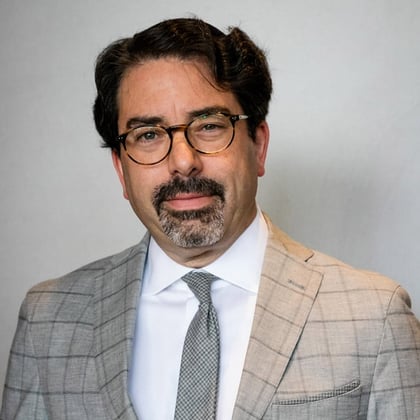Even more important than not running out of money in retirement is another goal: not having to make crucial financial decisions as you age.
“You want those to be on automatic pilot,” argues Moshe Milevsky, finance professor at York University in Toronto, and a member of the graduate faculty of mathematics and statistics, in an interview with ThinkAdvisor.
Further, he visualizes non-financial experts such as gerontologists, social workers and psychologists joining RIAs in the retirement conversation to help super-affluent clients plan for potential gerontologic health issues and other needs of the aged.
As for reducing, if not eliminating, financial decisions as one becomes older, guaranteed income products — aka annuities — fit the bill, Milevsky says.
In fact, annuities “must be a central component of the retirement portfolio.
“Stocks and bonds alone will never get you through the entire life cycle. You should include annuities to supplement them,” maintains the annuity expert.
In the interview, the professor recalls that in his college and early grad-student years, the “scientific philosophy” was that retirement income planning was the “nastiest” problem in modern finance, according to a branch of math related to engineering.
But “math will never solve retirement planning.” There’s much more to having a “satisfying, healthy and fulfilling retirement than ‘solving it,’” he contends.
Milevsky’s teaching focuses on wealth management, investments, insurance, pensions and retirement planning. He is also managing director of the consulting firm PiLECo.
He has published 15 books and more than 60 peer-reviewed scholarly papers, and given 1,000-plus keynote speeches and seminars.
“Longevity Insurance for a Biological Age” (2019) is one of his latest books.
ThinkAdvisor recently held a phone interview with Milevsky, speaking from Toronto, and a follow-up email exchange.
He praises comprehensive financial planning but cautions that, with the breadth of critical aspects, it “can’t be done in an elevator.”
Here are highlights of our interview:
THINKADVISOR: What’s a critical key to retirement planning?
MOSHE MILEVSKY: As you get older, you should make fewer financial decisions. You want those to be on automatic pilot. This goal is even more important than not running out of money in retirement.
I’m in my early 50s chronologically, and I really enjoy the investment and portfolio construction process. I enjoy optimization. I hope to be doing all that a decade from now.
But in two decades, at 70, I’m not so sure. At 80, I’m not certain I’ll have the financial or technical acumen to deal with whatever investment vehicle will be around then.
And at 90, I won’t want to make these decisions.
I can assure you that if I ever reach 95, there’s no way I plan to log on to Vanguard or Fidelity anymore or check P/E ratios or payout rates.
If I’m alive then, I’ll be happy with a decent bowel movement!
So, as I age, I want to make fewer financial decisions. I want to set my finances on automatic pilot at retirement and live off the cash flow.
What’s a good product to use?
That’s one of the benefits of annuities. You just cash the check. No decisions. No asset allocation. No optimization.
I think that annuities — described these days as guaranteed income products — must be a central component of the retirement portfolio. It’s important in the later decumulation phase, quite obviously.
Even in the accumulation phase, you have to start considering how annuities will be incorporated because stocks and bonds alone will never get you through the entire life cycle.
You should include annuities in the retirement income portfolio to supplement stocks and bonds.









 March 18, 2022 at 04:49 PM
March 18, 2022 at 04:49 PM











